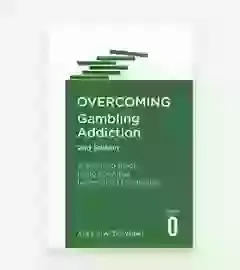What Do We Mean By Gambling Addiction?
Gambling is an attractive form of entertainment that most people have enjoyed at one time or other in their adult life at least on one or more occasions. In contemporary society, it is common for people to play cards for money with family members or school friends; to play bingo, fruit machines and other forms of gaming machines; to purchase lottery or raffle tickets or enter sweepstakes, and to bet off-track or visit casinos. Many of these activities can be either in land-based venues or through the Internet using computers, smartphones or tablets. All these activities are regarded as fun and are socially approved forms of leisure. Dreams of vast wealth and changes in fortune also entice people to try their luck: a jackpot could easily help pay off the mortgage or mean an overseas holiday or a new car. However, most people are realistic: they hope to win, but really expect to lose. They only stake money that they can afford to lose. It is apparent that the physical arousal generated by the prospect of winning is experienced as excitement and is the main factor attracting people to gambling.
Most people gamble sensibly within their financial means, but for a few gambling is an over-riding passion that dominates many aspects of their life. They become obsessed with the anticipation of the next bet, playing electronic gaming machines or joining a card game, and so become preoccupied with thoughts of where to get more money so that they can carry on gambling. In these cases, the gambler is transformed into a withdrawn and moody person who is constantly plagued by worries about meeting debt repayments, finding daily living expenses and concealing debts. If a 'flutter' has evolved into something out of your control, then it has become a gambling addiction.
Some of the best predictors of pathological gambling are:
- The compulsion to chase losses
- Repeated failed efforts to stop gambling
- Gambling in response to negative emotions such as stress and depression
Despite the fact that gambling has led to the development of serious financial problems, compulsive gamblers hold a firm but wrong belief that more gambling is the solution to their troubles, that a win will save them by allowing them to pay off the debt. However, the cycle can be broken.






